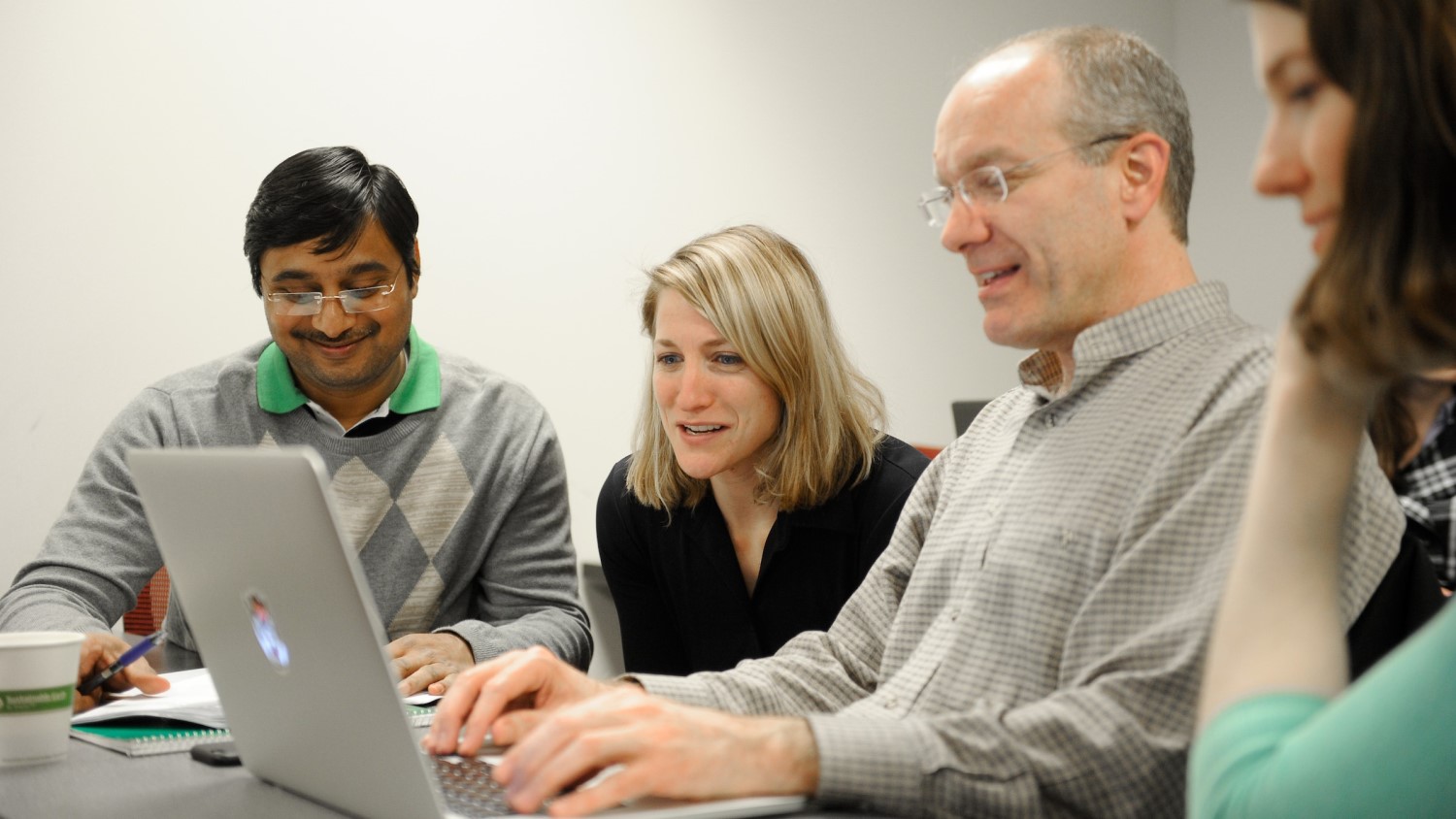Supporting Academic Continuity

Mid-March marked the beginning of a sea change for NC State faculty. In the wake of the COVID-19 pandemic, planning for academic continuity began, and in just two weeks, 98 percent of NC State’s more than 4,500 face-to-face classes moved online.
This marked many faculty members’ first foray into online teaching. Planning is underway for the fall semester, and in the College of Humanities and Social Sciences, faculty and university partners are there to help CHASS colleagues with their academic continuity questions.
“We have fabulous online faculty who can help their peers better prepare for online teaching in the fall,” said Deanna Dannels, associate dean for academic affairs and professor in the Department of Communication. “We wanted to maximize our resources, and wanted to have faculty help faculty to strengthen our online offerings.”
Peer Learning Circles
The No Lone Wolves Learning Circles are a series of short Zoom sessions for faculty and graduate teaching assistants, taught by CHASS faculty with expertise in online teaching who are serving as Academic Continuity Mentors during this time. These learning circles are designed to assist both faculty and graduate instructors with varying degrees of experience in online education, and cover how to build, teach and assess online classes.
Learning circles are being held through the month of June, several days a week for 45 minutes, with an optional 15-minute question and answer session at the end. Each learning circle includes a variety of online resources, and facilitators provide advice that faculty can build into their course plans for fall.
Upcoming Zoom sessions include: How Do Students Read Feedback? Incorporating Student Self Reflection and Analysis into Assessment; Getting Them to Talk: Facilitating Engaging Discussions in Online Classrooms; Developing Flexible Writing Assignments for Online Classrooms; #StudentCare = #SelfCare: Being Compassionate in an Online Teaching Environment; and Small Changes, Big Impact: Accessibility and Accommodations in Online Learning; and Teaching Controversial Topics Online.
Previous workshops have had more than 30 participants. For those unable to attend, PowerPoints and Google documents are provided.
“We’re really fortunate to be able to engage with campus partners like DELTA, the Office of Faculty Development and the Office of Student Conduct to provide rich, informative content to our attendees,” said Dannels. “We want faculty to feel equipped to prepare for every possible online learning scenario for the fall.”
Academic Continuity Mentors
In addition to facilitating the learning circles, Academic Continuity Mentors provide various levels of peer mentoring to College of Humanities and Social Sciences faculty and graduate teaching assistants as they prepare continuity plans for Fall 2020 courses.
Department heads nominated faculty with expertise and experience in online instruction to serve as mentors. These faculty provide varying degrees of continuity mentoring from novice to more advanced (in terms of course-based needs); generalized to more personalized (in terms of faculty needs); and just-in-time to more sustained (in terms of planning needs). Mentors are facilitating academic continuity workshops, monitoring and responding to Google Hangout questions, and providing individual mentorship for groups of 2-4 faculty.
Even though these resources are specific to CHASS faculty, DELTA and the Office of Faculty Development are available to help other colleges and units set up similar programs. Individual faculty can also visit the Keep Teaching website and learn more about available training and resources.
“Throughout the summer, we will move many of our resources online to further reach faculty who could not participate, so that there are a number of accessibility options,” said Dannels. “Looking into the fall, we would also like to continue our offerings in some form, to continue to support faculty and create a strong sense of academic community during times when community is vital.”
- Categories:


